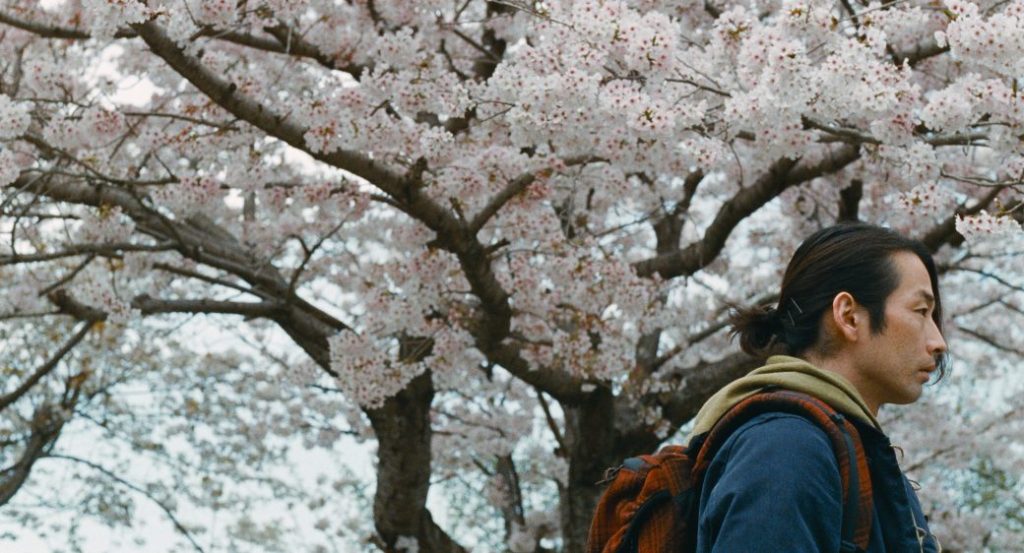The belief that the dead live on in our memories is often the only comfort anyone can think to offer the bereaved, or those in the process of losing a loved one. But for Takashi (Mirai Moriyama), the introspective adult son at the heart of Kei Chika-ura‘s quietly tectonic heartbreaker, that comfort is unavailable on multiple levels. Not only has he been long estranged from his father, Yohji (a shattering San Sebastian Best Performance-winning Tatsuya Fuji), but Yohji’s own precipitous descent into the fog of dementia means that whatever Takashi can now learn of him, at this late stage, is jumbled and fragmentary and possibly false. How can we adequately remember someone who cannot remember himself?
Like so much of “Great Absence,” that question is posed as a kind of mystery, made all the eerier by the ordinariness of the clues that tease its solution — an uncanceled meal delivery, a missing car, a cellphone that beeps from an adjoining room. Takashi, a Tokyo-based actor married to producer Yuki (Yoko Maki) is summoned from rehearsal by the police, who have just raided his father’s home in Southern Japan in answer to a distress call. In the cluttered house, every surface littered with sticky-note how-to reminders about using the phone and closing the fridge when it beeps, the police only find a confused Yohji, clutching a briefcase. His partner Naomi (Hideko Hara), the woman for whom Yohji had left Takashi’s mother many years before, is nowhere to be found.
More out of filial duty than love, Takashi flies out, accompanied by an insistent Yuki — one of the film’s background pleasures is the description of their marital relationship and the subtle way the unfolding tragedy of his father’s condition may help to strengthen it. Once there, they sift together through the detritus of Yohji and Naomi’s life together, and visit Yohji in the care facility to which he has been committed. Yohji is paranoid and often incoherent, and accounts for Naomi’s absence with a string of lurid scenarios, perhaps as a way to shield himself from the more banal but less bearable truth, which is gradually revealed through the film’s chronology-shifting structure.
The only two occasions on which Takashi and Yohji met in recent years play out as flashbacks, which are inserted into the main narrative through cleverly disorienting edits (by director Kei, who also co-wrote and produced his sophomore feature). First, Takashi, who has recently enjoyed some success in a popular period TV drama, visits Yohji and Naomi at their home. And later, Yuki meets her father-in-law for the only time at a Tokyo restaurant — an encounter that becomes markedly less cordial as soon as Takashi joins them. Each of these scenes is an exquisitely drawn pen-portrait of familial resentment getting in the way of what we nonetheless understand is a mutual desire for reconciliation, buried under layers of reticence and wounded pride.
Through those flashback sequences, too, we begin to understand that the relationship between Naomi and Yohji was, perhaps like all relationships, a world unto itself. The domestic snapshot Takashi got, of a domineering man of science and the kind-eyed woman he appeared to take for granted as a barely glorified housekeeper, was only one facet of a much more complex whole, which is glimpsed when present-day Takashi discovers Naomi’s diary, where she had pasted all his father’s old love letters. “Bridges of Madison County”-style, they reveal a depth of passion in Yohji, that Takashi, himself an aloof, undemonstrative type, could scarcely have suspected. Aside from painful passages pertaining to the “woman I never loved” (Takashi’s mother) and the “family I should not have had,” the letters are stirringly romantic in their desperate longing, and hint at the contours of an epic lifelong ardor that, with Naomi’s disappearance and Yohji’s failing memory, is being cruelly erased from a hard world that needs all the love stories it can get.
Shot by regular Kore-eda DP Yutaka Yamazaki (“Nobody Knows,” “After the Storm,” “I Wish”) with restrained realism that still allows for the occasional moment of happenstance beauty, the unmistakably personal “Great Absence” is based on Kei’s own experiences. But it gets its fire and ice from the legendary Fuji (“In the Realm of the Senses”), who creates an unforgettable portrait of Yohji’s loss of faculty, which is not just piteous but marked with flashes of ugly rage, at a disease that is not loss, but slow, protracted robbery. And so even though “Great Absence,” is a little overlong and its framing device, an avant-garde theater piece, feels unnecessary, in another way its multiple strands and many endings are extraordinarily, poetically appropriate. Because dementia can manifest as a series of erratic goodbyes, sometimes to people who have lived in our loved ones forever, but whom we have only just met.
Read More About:
Source: Read Full Article

